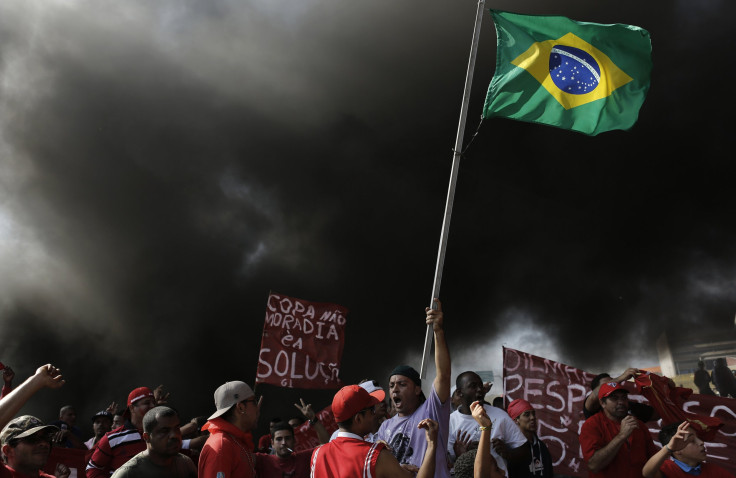
A new survey released on Tuesday by the Pew Research Center found that 61 percent of Brazilians don’t want their country to play host to the World Cup this June, saying they believe the event redirects public resources away from public services like schools and health care. Just over a third (34 percent) said they thought the Cup was a “good thing because it creates jobs” -- the government and FIFA’s argument since large-scale protests broke out last June. Brazil has spent almost $13.5 billion on infrastructure for the Cup, according to Bloomberg.
When Brazil was chosen as the venue for this year’s Cup in November 2008, 79 percent of Brazilians said they were happy about hosting it. But it appears that seeing the idea translated into reality has led them to sour on the real thing. And many seem to have been convinced -- or at least unsettled enough to doubt the Cup’s benefits -- by protestors. Last June, just before protests broke out, 81 percent told a Brazilian polling firm that they supported it. In February, that was down to just 52 percent.
What’s clear is discontent among Brazilians over the country’s progress in basic quality of life measures. Some 85 percent told the Pew Center that rising prices posed a major problem; 83 percent said the same about crime and health care, while 78 percent and 64 percent named political corruption and low quality schools as major problems, respectively. And as El Pais notes, where 75 percent of the country said in 2010 that they believed the national government had a positive influence on the way things were going, now only 47 percent felt the same way.
© 2025 Latin Times. All rights reserved. Do not reproduce without permission.





